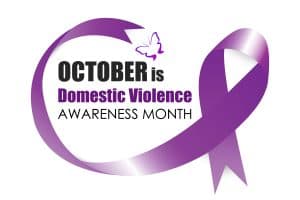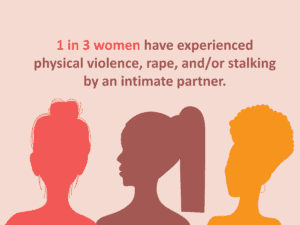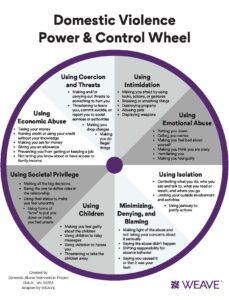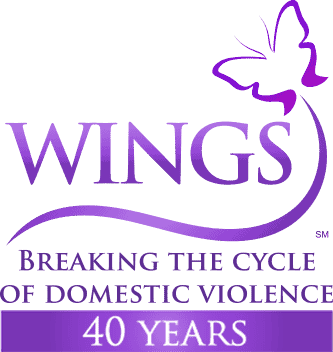October is Domestic Violence Awareness Month
- Posted by Sarah Swiston
- On September 29, 2023
- domestic abuse, Domestic Shelters, Domestic Violence, domestic violence agency, Domestic Violence Awareness Month, domestic violence FAQ, domestic violence organization, DV agency, dv survivors, End Domestic Violence, family services, Housing Programs, mental health awareness, non-profit, October Domestic Violence Awareness, power and control, Power and control wheel, WINGS, WINGS Program
 October is Domestic Violence Awareness Month. Learn more about how common domestic violence is, examples of tactics that abusers use to keep survivors in the relationship, and how domestic violence impacts a survivor’s health. Help is available, you are not alone.
October is Domestic Violence Awareness Month. Learn more about how common domestic violence is, examples of tactics that abusers use to keep survivors in the relationship, and how domestic violence impacts a survivor’s health. Help is available, you are not alone.
What is Domestic Violence?
Domestic violence is a pattern of abusive behavior that is used by one partner to gain or maintain power and control over another intimate partner. Domestic violence is not limited to physical violence and can take many forms.
Examples of abusive behavior include:
- physical
- sexual
- emotional
- economic
- psychological
- technological
- and more.
Click here to learn about 9 warning signs of domestic violence.
Domestic violence does not discriminate. It impacts people across all genders, sexual orientations, socioeconomic levels, cultures, and religions. It can occur in LGBTQ relationships or heterosexual ones.
4 Domestic Violence Facts
 According to a CDC study, 1 in 3 women and 1 in 4 men have experienced physical violence, rape, and/or stalking by an intimate partner in their lifetime.
According to a CDC study, 1 in 3 women and 1 in 4 men have experienced physical violence, rape, and/or stalking by an intimate partner in their lifetime.
- Additionally, this report found on average, nearly 20 people per minute are physically abused by an intimate partner in the United States.
- Locally, since the pandemic, the need for domestic violence services continues to rise. In 2022, the statewide Illinois Domestic Violence Hotline received more than 37,000 contacts for assistance, making it the fourth consecutive year of record-breaking calls. This represents a 50% increase in calls for assistance since 2019.
- In 2022, throughout Illinois there were 96 nights with no shelter beds and available cribs.
Why Stay?
 Survivors stay in abusive relationships for many reasons. Fear and the inability to find another safe place to stay can be factors. The Power and Control Wheel diagram shows tactics abusive partners use to maintain power and control over survivors.
Survivors stay in abusive relationships for many reasons. Fear and the inability to find another safe place to stay can be factors. The Power and Control Wheel diagram shows tactics abusive partners use to maintain power and control over survivors.
- Economic Abuse – one of the most common
- Preventing the survivor from getting or keeping a job
- Preventing the survivor from accessing income or joint assets
- Using survivor’s credit without their permission
- Withholding the survivor’s own money
- Making the survivor have to ask for money or giving an allowance
- Threats and Coercion
- Threats of harm or suicide
- Coercing the survivor into doing something illegal or to drop charges
- Intimidation
- Smashing items, destroying property, showing weapons
- Using looks and gestures to cause fear
- Emotional Abuse
- Putting the survivor down, name calling, crazymaking, mind games, humiliation, making the survivor feel guilty
- Isolation
- Controlling who the survivor communicates with and visits
- Using jealousy to justify actions
- Children
- Making the survivor feel guilty about the children
- Using the children to relay messages
- Using visitation to harass the survivor
- Threatening to take the children away
- Minimizing, Denying, and Blaming
- Making light of the abuse
- Saying the abuse doesn’t happen
- Shifting responsibility for the abusive behavior and/or saying the survivor caused it
- Using Privilege
- Treating the survivor like a servant
- Making all the big decisions
- Being the one to define each other’s roles or duties in the relationship
Mental Health Impacts
Did you know that mental health and domestic violence are often intertwined? The trauma caused from domestic abuse puts survivors at risk for developing mental health conditions including depression, anxiety and PTSD. Also, mental illness may increase a person’s vulnerability to abuse.
 Since the pandemic began, WINGS has seen increased levels of trauma from survivors in need of services. Of 46 counseling case files from WINGS FY2023, 72% reported positive screens on at least one behavioral health concern including mental illness, suicidal/homicidal ideation, and/or substance abuse. Since clients self-report this information, actual instances may be higher as clients tend to underreport. Click here to learn mental health tips and here for more information on WINGS counseling services.
Since the pandemic began, WINGS has seen increased levels of trauma from survivors in need of services. Of 46 counseling case files from WINGS FY2023, 72% reported positive screens on at least one behavioral health concern including mental illness, suicidal/homicidal ideation, and/or substance abuse. Since clients self-report this information, actual instances may be higher as clients tend to underreport. Click here to learn mental health tips and here for more information on WINGS counseling services.
This news is unfortunately not surprising. Mental health conditions are found at higher rates among domestic violence survivors. Often internalizing verbal abuse from their partner, they may blame themselves for their situation. So on top of the fear they may be experiencing, they may also feel anger toward themselves. Long-term abuse can lead to compulsive behaviors, self-destruction, or suicide.
Mental Health and Domestic Violence Survivors
- Posttraumatic Stress Disorder:
One national CDC study found that 80% of women who experience rape, stalking or physical violence by an intimate partner report significant short or long-term PTSD.
- Depression:
Survivors of domestic violence have nearly double the risk for developing depressive symptoms and three times the risk for developing a major depressive disorder.
- Suicidality:
Women who reported partner violence at least once in their lifetime are nearly three times as likely to have suicidal thoughts and nearly four times as likely to attempt suicide compared to women who have not been abused by a partner.
- Anxiety Disorders:
Survivors have a nearly three times greater risk of having an anxiety disorder diagnosis.
- Substance Abuse:
One study from the Archives of Internal Medicine suggests that survivors are nearly six times as likely to have a substance use disorder as compared to those who have never been abused.
Help is Available
If you think you may be in an abusive relationship, WINGS is available to help.
The agency’s holistic approach ranges from emergency Safe Houses, Transitional Housing, Community-Based Services including mentorship and hospital partnerships and comprehensive children’s services. Click here to learn more.
Domestic Violence 24-Hr Hotline: 847.221.5680
To learn more about Counseling and/or Mentoring, call WINGS Intake Line: (847) 519-7828
The Intake Line is answered by trained crisis workers Monday-Friday, 9am-5pm. If you should call outside of these hours, please leave a message and a worker will return your call the next business day.
Stay Tuned…
As a result of the increased need for counseling services for domestic violence survivors, WINGS is in the process of opening the Foglia Family Resource Center. This expansion will allow WINGS to serve children and adult survivors who are not currently living in one of WINGS housing programs. This state-of-the-art counseling center will support survivors of domestic violence in the community by offering:
- Adult Counseling: individual and group
- Children’s Counseling: individual and group
- Teen Groups: focusing on healthy relationships
- Parenting Groups
- And More!
With your donation of $10, $50, $100, or whatever you can afford, you can support survivors and help prevent domestic violence from happening in the future.
Learn ways you can make a difference for Domestic Violence Survivors:

0 Comments